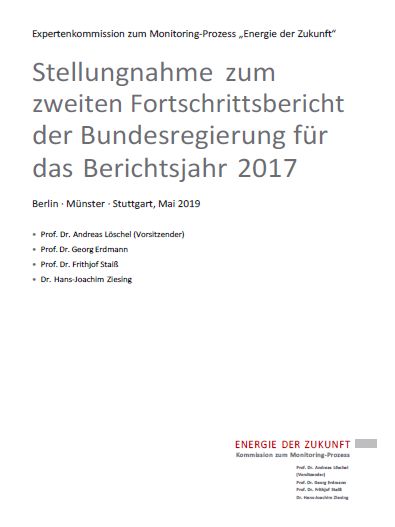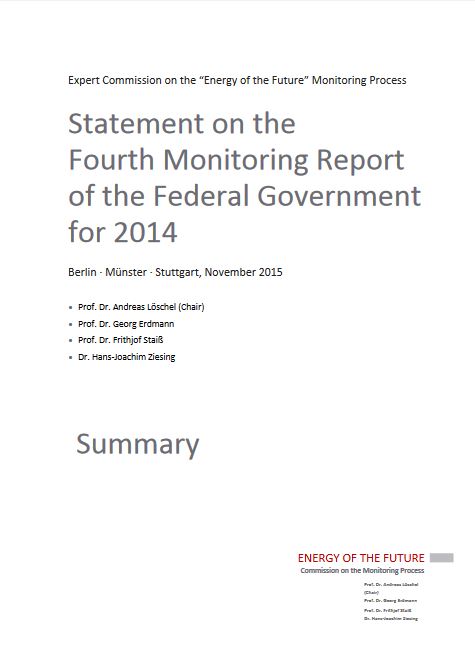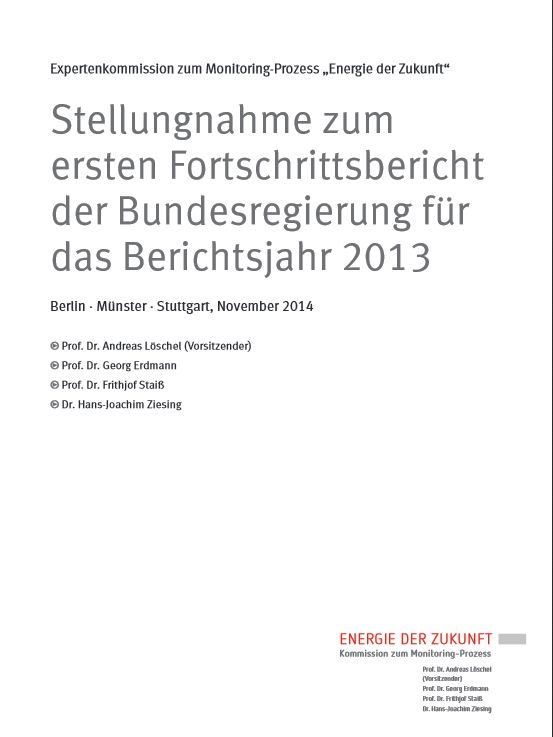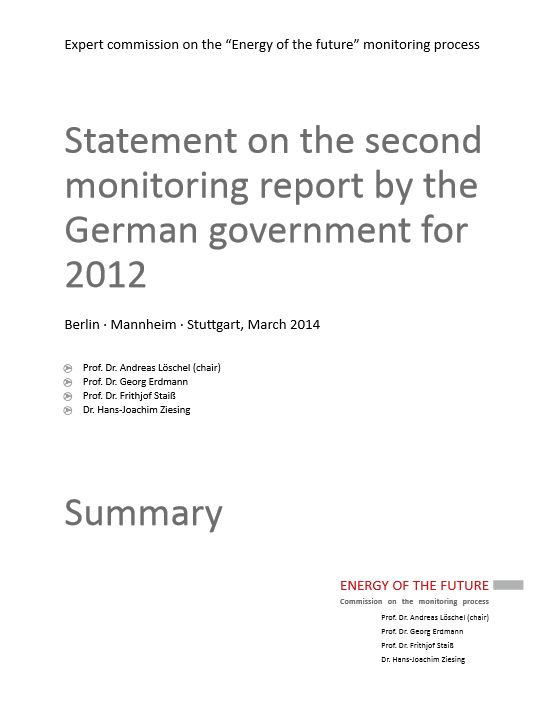Statement on the Sixth Monitoring Report of the Federal German Government for 2016
Expert Commission on the "Energy of the Future" Monitoring Process
- Publication
- Citation
Löschel, Andreas, Georg Erdmann, Frithjof Staiß, Hans-Joachim Ziesing (2018): Statement on the Sixth Monitoring Report of the Federal German Government for 2016 - Summary. Berlin, Münster, Stuttgart.
In June 2018, the joint statement of the Expert Commission on the "Energy of the Future" Monitoring Process was published. Ecologic Institute provides scientific support to the work of the Expert Commission with a focus on the key topics that Dr. Hans-Joachim Ziesing and the Expert Commission selected for their joint statement. The joint statement is available for download.
The joint statement provides a scientific assessment and evaluation of the Monitoring Report of the German government. In recent years, the German government has been able to implement important energy transition measures. These include the National Action Plan on Energy Efficiency (NAPE), the transition to tenders to promote the expansion of renewable energy and the further development of the power market design. However, these measures are not sufficient to achieve the objectives of the energy concept. With this statement, the expert commission wants to contribute to successfully shaping the next phase of the energy transition. To this end, the fields of action in which important decisions have to be made are considered.
The key findings of the report are:
- The energy transition in Germany is not making progress in all fields as desired. Although the expansion of renewable energies is making further progress, these are offset by considerable deficits in increasing energy efficiency.
- In the field of energy efficiency, despite countless policy initiatives and measures, none of the 2020 targets is likely to be achieved.
- In the transport sector, final energy consumption rose for the fourth time in a row, in 2016 alone by almost 3 % compared to the previous year. Meanwhile, the gap to the 2020 target in Germany corresponds roughly to the annual consumption of more than 10 million passenger cars. A clear reaction of the Federal Government to this negative development, which has existed for years, is not yet discernible.
- As a result, the overall climate protection target for 2020 will in all likelihood be clearly missed.
- The expert commission sees problems with supply security, especially due to the slow expansion of the electricity networks. The price-worthiness of the energy transition is currently given.
- The German government must put the energy transition back on the political agenda. The successful transformation of the energy system requires a timely reform of fees, taxes, levies and levies on electricity in particular. The guiding principle should be a general CO2 pricing.
The independent Expert Commission, composed of Prof. Dr. Andreas Löschel, Prof. Dr. Georg Erdmann, Prof. Dr. Frithjof Staiß and Dr. Hans-Joachim Ziesing, provides scientific support and deliveres a joint statement on the goverment's monitoring process "Energy of the Future". The government implemented the monitoring process to keep track of targets of the German "Energiewende".
The whole report in German, as well as the reports of the previous years are available through the website of the Federal Ministry of Economic Affairs and Energy.



